 Tiit Tammaru is a Professor of Urban and Population Geography in the University of Tartu, and a guest Professor of Social Inequalities and Segregation in Delft University of Technology. His main fields of study are migration and segregation. At present, he is mainly interested in issues related to segregation and integration in various fields of life (family, place of residence, school, and work, etc.), which he studies with colleagues on the basis of big national data (censuses, registers) from Estonia, the Netherlands, UK, Sweden and Finland. In 2011, his research was recognized with a National Research Award. He was the first editor of the book ‘Socio-Economic Segregation in European Capital Cities’ (Routledge, 2016).
Tiit Tammaru is a Professor of Urban and Population Geography in the University of Tartu, and a guest Professor of Social Inequalities and Segregation in Delft University of Technology. His main fields of study are migration and segregation. At present, he is mainly interested in issues related to segregation and integration in various fields of life (family, place of residence, school, and work, etc.), which he studies with colleagues on the basis of big national data (censuses, registers) from Estonia, the Netherlands, UK, Sweden and Finland. In 2011, his research was recognized with a National Research Award. He was the first editor of the book ‘Socio-Economic Segregation in European Capital Cities’ (Routledge, 2016).
 Kristina Kallas is the Director of the University of Tartu’s Narva College, whose main fields of research include the integration processes in societies with ethnic minorities, the division of political rights and the regulation of the rights of ethnic minorities, and the rights of immigrant in receiving societies. At present, she is mainly studying issues of the integration and the rights of Russian-speaking minorities in the former Republics of the Soviet Union as well as Russia’s policies towards ex-compatriots. In 2017, a cooperative research project about the impacts of Russia’s compatriot policy and the reception of the ‘Russkyi Mir’ concept within Russian-speaking minorities all over the world was started, administrated by her together with her colleagues from the universities of Uppsala and Glasgow.
Kristina Kallas is the Director of the University of Tartu’s Narva College, whose main fields of research include the integration processes in societies with ethnic minorities, the division of political rights and the regulation of the rights of ethnic minorities, and the rights of immigrant in receiving societies. At present, she is mainly studying issues of the integration and the rights of Russian-speaking minorities in the former Republics of the Soviet Union as well as Russia’s policies towards ex-compatriots. In 2017, a cooperative research project about the impacts of Russia’s compatriot policy and the reception of the ‘Russkyi Mir’ concept within Russian-speaking minorities all over the world was started, administrated by her together with her colleagues from the universities of Uppsala and Glasgow.
 Raul Eamets is a Professor of Macroeconomics at the Faculty of Economics as well as the Dean of the Faculty of Social Sciences of the University of Tartu and a member of the Rectorate of the University, whose main field of research relates to the labour market. He has written articles on the flexibility and flexicurity of the labour market, on employment policy, on the role of trade unions on the labour market, as well as on the relationships between education and the labour market. At present, his research activities focus on migration, the salary gap, and demographics. He has been a guest researcher in England, Germany and Denmark, and he has participated in numerous international and national research projects. He is the author of over 140 scientific publications.
Raul Eamets is a Professor of Macroeconomics at the Faculty of Economics as well as the Dean of the Faculty of Social Sciences of the University of Tartu and a member of the Rectorate of the University, whose main field of research relates to the labour market. He has written articles on the flexibility and flexicurity of the labour market, on employment policy, on the role of trade unions on the labour market, as well as on the relationships between education and the labour market. At present, his research activities focus on migration, the salary gap, and demographics. He has been a guest researcher in England, Germany and Denmark, and he has participated in numerous international and national research projects. He is the author of over 140 scientific publications.
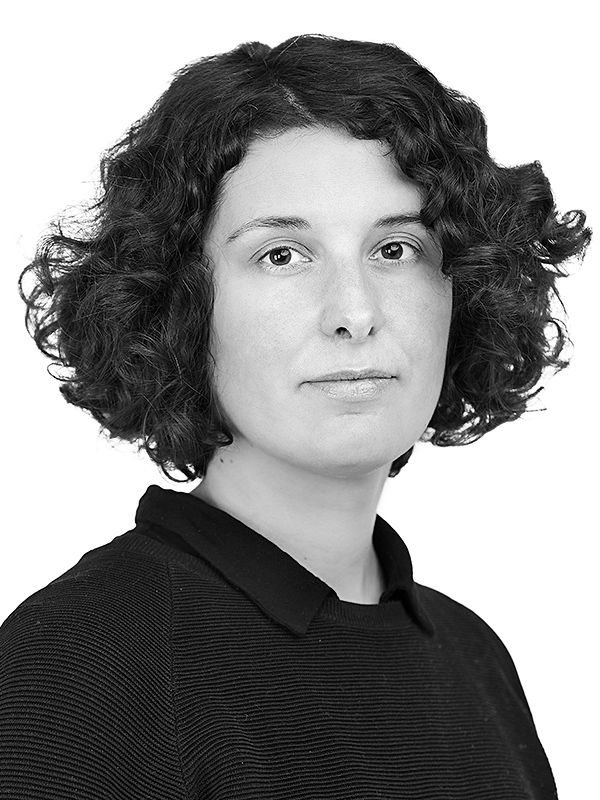 Liili Abuladze is a Project Manager of the Estonian Demographic Association of the Estonian Institute for Population Studies in Tallinn University, whose main fields of research are the aging of populations, cohabitation models of the elderly and relations between generations, as well as demographic processes and developments related to segments of the foreign origin population. She holds a MSc in Population Studies from the University of Groningen in Holland, and she has passed the European Doctoral School of Demography. At present, she is conducting her Doctorate studies in Tallinn University.
Liili Abuladze is a Project Manager of the Estonian Demographic Association of the Estonian Institute for Population Studies in Tallinn University, whose main fields of research are the aging of populations, cohabitation models of the elderly and relations between generations, as well as demographic processes and developments related to segments of the foreign origin population. She holds a MSc in Population Studies from the University of Groningen in Holland, and she has passed the European Doctoral School of Demography. At present, she is conducting her Doctorate studies in Tallinn University.
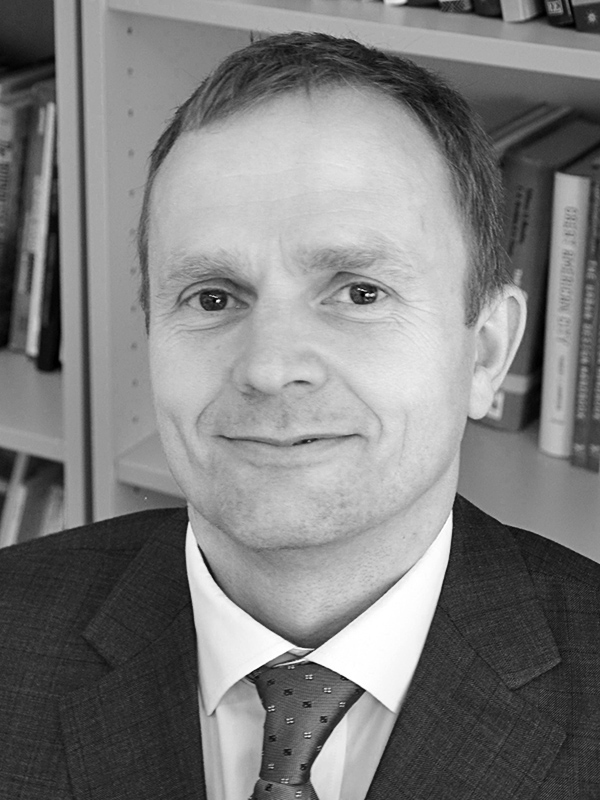 Rein Ahas is a Professor of Human Geography in the University of Tartu; his studies mainly focus on the spatial mobility of populations and environmental change. His special field of interest is developing new methods for mobile phones based research; he is a member of the Eurostat Big Data working party and one of the initiators of the international conference series “Mobile Tartu”. He was a Research Professor of the Estonian Academy of Sciences in 2013-2015 and he is on the editorial board of the journals ‘Journal of Location Based Service’ and ‘Big Data and Society’.
Rein Ahas is a Professor of Human Geography in the University of Tartu; his studies mainly focus on the spatial mobility of populations and environmental change. His special field of interest is developing new methods for mobile phones based research; he is a member of the Eurostat Big Data working party and one of the initiators of the international conference series “Mobile Tartu”. He was a Research Professor of the Estonian Academy of Sciences in 2013-2015 and he is on the editorial board of the journals ‘Journal of Location Based Service’ and ‘Big Data and Society’.
 Aet Annist is a Senior Research Fellow in the Ethnology Department of the University of Tartu, and a Honorary Research Associate of the Archaeology and Anthropology Department of the University of Bristol, whose main fields of research include rural development and the institutions impacting it, the mutual relations between migration and political-economic changes, as well as the emergence of new class relations in these circumstances. At present, she is studying the young people of heritage-cultural regions as a part of the international ‘Horizon2020 PROMISE’ collaboration project. She is the author of the book ‘Seeking community in post-socialist Estonian centralised villages’ (2011).
Aet Annist is a Senior Research Fellow in the Ethnology Department of the University of Tartu, and a Honorary Research Associate of the Archaeology and Anthropology Department of the University of Bristol, whose main fields of research include rural development and the institutions impacting it, the mutual relations between migration and political-economic changes, as well as the emergence of new class relations in these circumstances. At present, she is studying the young people of heritage-cultural regions as a part of the international ‘Horizon2020 PROMISE’ collaboration project. She is the author of the book ‘Seeking community in post-socialist Estonian centralised villages’ (2011).
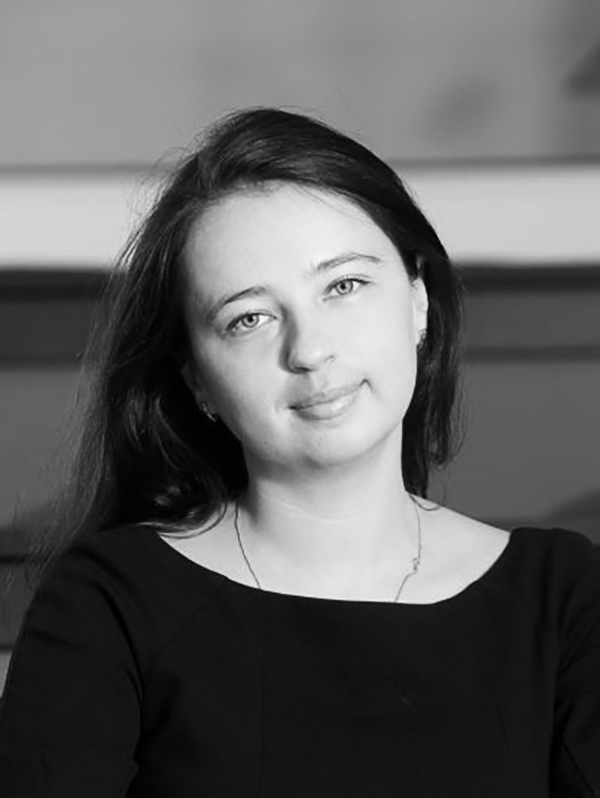 Eva-Maria Asari is an external lecturer with the Estonian Academy of Security Sciences and a lecturer in the Frontex European Joint Master’s Programme in Strategic Border Management, whose main fields of research are immigration and integration. At present, she is mostly interested in issues related to the European migration crisis and international protection. She has also studied the impacts and threats of immigration as well as the correspondence of the professional skills of immigrants arriving in Estonia with the needs of Estonia’s labour market.
Eva-Maria Asari is an external lecturer with the Estonian Academy of Security Sciences and a lecturer in the Frontex European Joint Master’s Programme in Strategic Border Management, whose main fields of research are immigration and integration. At present, she is mostly interested in issues related to the European migration crisis and international protection. She has also studied the impacts and threats of immigration as well as the correspondence of the professional skills of immigrants arriving in Estonia with the needs of Estonia’s labour market.
 Martin Ehala is a Professor of Literacy Education in the University of Tartu; his main research interests are in the development of the linguistic environment of Estonia, language ecology, and ethnolinguistic vitality. At present, he is in charge of the institutional research programme ‘Sustainability of Estonian in the Era of Globalisation’ that focuses on developing a systematic interdisciplinary approach to language ecology research. His monograph ‘Signs of Identity. The Anatomy of Belonging’ (2017) focuses on the relationships of language and identity.
Martin Ehala is a Professor of Literacy Education in the University of Tartu; his main research interests are in the development of the linguistic environment of Estonia, language ecology, and ethnolinguistic vitality. At present, he is in charge of the institutional research programme ‘Sustainability of Estonian in the Era of Globalisation’ that focuses on developing a systematic interdisciplinary approach to language ecology research. His monograph ‘Signs of Identity. The Anatomy of Belonging’ (2017) focuses on the relationships of language and identity.
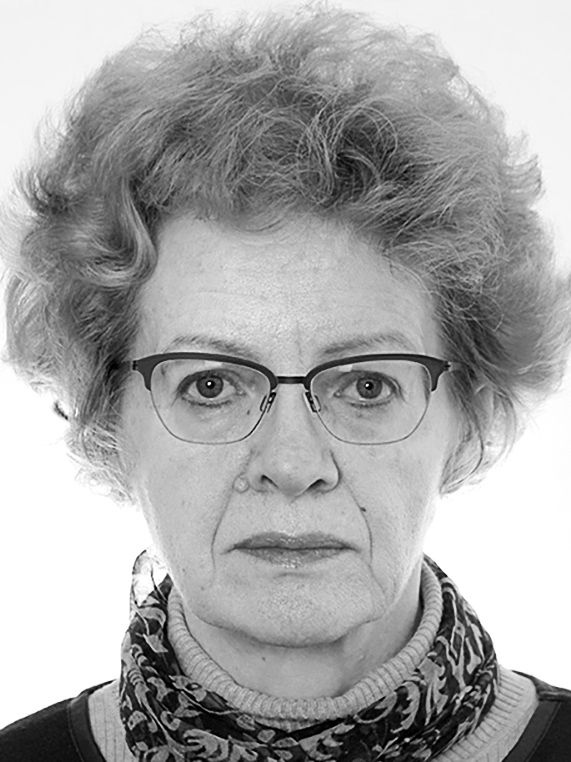 Jelena Helemäe is a Senior Research Fellow of International Social Studies in Tallinn University, whose research focuses on the ethnic inequality of society and the various dimensions of social stratification. She has published chapters in books by the well-known publishing houses; Palgrave McMillan, Edward Elgar Publishing, and Peter Lang Publishers House.
Jelena Helemäe is a Senior Research Fellow of International Social Studies in Tallinn University, whose research focuses on the ethnic inequality of society and the various dimensions of social stratification. She has published chapters in books by the well-known publishing houses; Palgrave McMillan, Edward Elgar Publishing, and Peter Lang Publishers House.
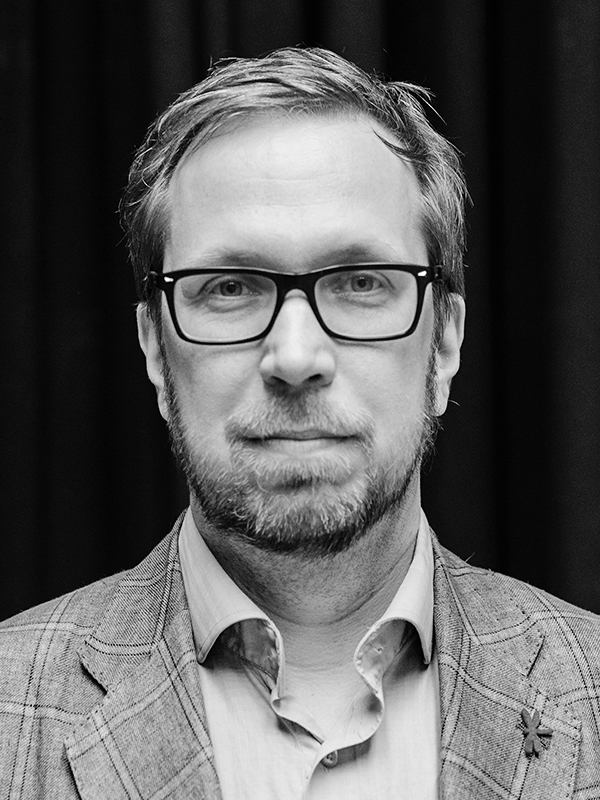 Indrek Ibrus is an Associate Professor and Senior Research Fellow of Tallinn University as well as the head of the Media Innovation and Digital Culture Excellence Centre MEDIT, whose main fields of research include media innovation and evolution. His present fields of research include recycling digital heritage, the evolution of the standards of audio-visual content metadata, rearrangements on audio-visual markets and media and internet policies. He was the primary editor of the book ‘Crossmedia Innovations: Texts, Markets, Institutions’ published in 2012.
Indrek Ibrus is an Associate Professor and Senior Research Fellow of Tallinn University as well as the head of the Media Innovation and Digital Culture Excellence Centre MEDIT, whose main fields of research include media innovation and evolution. His present fields of research include recycling digital heritage, the evolution of the standards of audio-visual content metadata, rearrangements on audio-visual markets and media and internet policies. He was the primary editor of the book ‘Crossmedia Innovations: Texts, Markets, Institutions’ published in 2012.
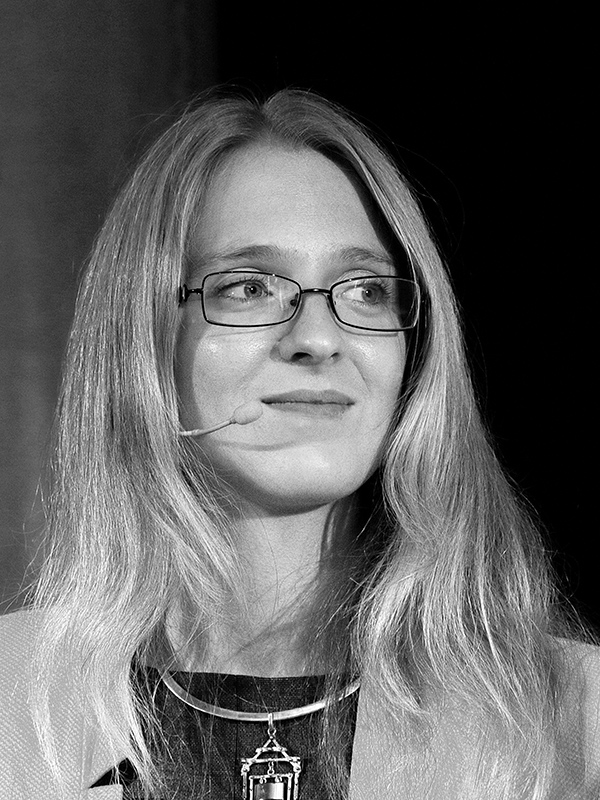 Mari-Liis Jakobson is an Associate Professor of Political Sociology of Tallinn University and a Research Fellow of the Estonian European Migration Network National Contact Point, whose research activities are centred on the links between transnationalism, migration and citizenship from the points of view of policy measures as well as individuals. She defended her Doctoral thesis titled ‘Citizenship in Transformation: Political Agency in the Context of Migrant Transnationalism’ in 2014. After that, she focused on multiple citizenships policy and transnationalism policy in a broader context and has also analysed migration and integration policies.
Mari-Liis Jakobson is an Associate Professor of Political Sociology of Tallinn University and a Research Fellow of the Estonian European Migration Network National Contact Point, whose research activities are centred on the links between transnationalism, migration and citizenship from the points of view of policy measures as well as individuals. She defended her Doctoral thesis titled ‘Citizenship in Transformation: Political Agency in the Context of Migrant Transnationalism’ in 2014. After that, she focused on multiple citizenships policy and transnationalism policy in a broader context and has also analysed migration and integration policies.
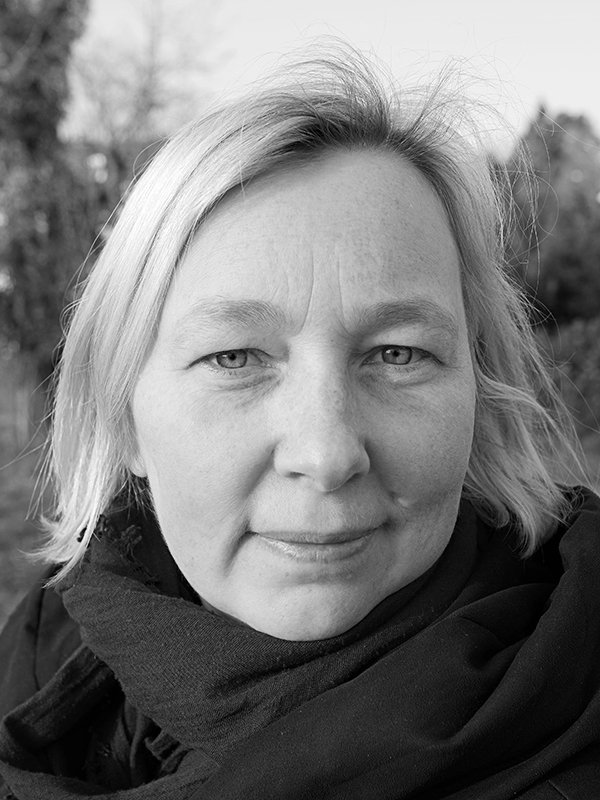 Kaja Kumer-Haukanõmm, PhD, is a historian working on the issues related to present-day refugees, whose main fields of research include migration (of Estonians) and the attitude of great powers towards Estonia during and after the Second World War. At present, she is mostly interested in the historical emigration waves of Estonians, Estonian diaspora communities’ development, and present-day refugees. A large part of her research is based on the materials of various archives. She has written numerous articles about the emigration of Estonians during the Second World War and the development of Estonian diaspora communities in the West.
Kaja Kumer-Haukanõmm, PhD, is a historian working on the issues related to present-day refugees, whose main fields of research include migration (of Estonians) and the attitude of great powers towards Estonia during and after the Second World War. At present, she is mostly interested in the historical emigration waves of Estonians, Estonian diaspora communities’ development, and present-day refugees. A large part of her research is based on the materials of various archives. She has written numerous articles about the emigration of Estonians during the Second World War and the development of Estonian diaspora communities in the West.
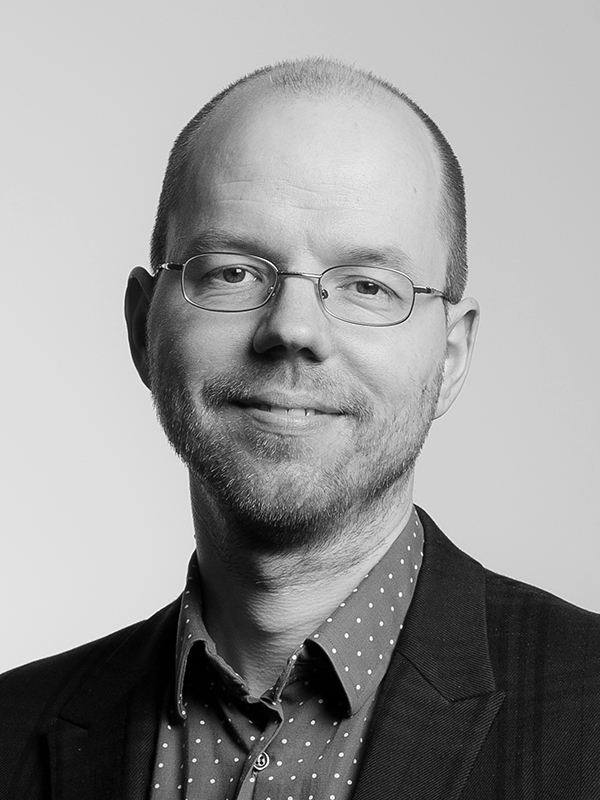 Rainer Kattel is a Research Professor in the Estonian Academy of Sciences and a Professor of Innovation Policy in the Ragnar Nurkse School of Innovation and Governance at the Tallinn University of Technology, whose main fields of research are related to innovation policy and innovation in the public sector as well as alternative economic theories. He edited the ‘Elgar Handbook of Alternative Theories of Economic Development’ (2016) together with Erik Reinert and Jayati Ghosh.
Rainer Kattel is a Research Professor in the Estonian Academy of Sciences and a Professor of Innovation Policy in the Ragnar Nurkse School of Innovation and Governance at the Tallinn University of Technology, whose main fields of research are related to innovation policy and innovation in the public sector as well as alternative economic theories. He edited the ‘Elgar Handbook of Alternative Theories of Economic Development’ (2016) together with Erik Reinert and Jayati Ghosh.
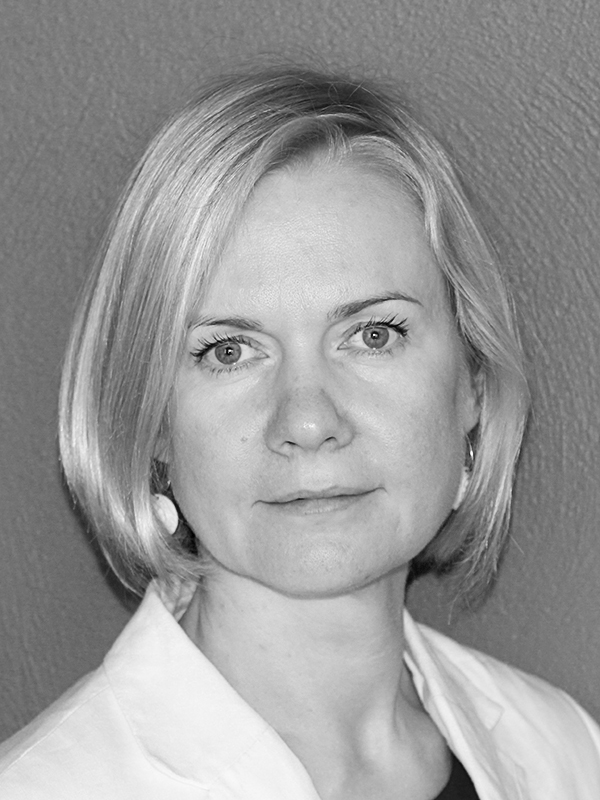 Eneken Laanes is a Senior Research Fellow of the Estonian Academy of Sciences and the Under and Tuglas Literature Centre and an Associate Professor of Comparative Literature in Tallinn University, whose main fields of research include cultural memory, post-Soviet memory culture in Eastern Europe, and cross-national literature and art. She has published the monograph ‘Unresolved Dialogues: Subjectivity and Memory in Post-Soviet Estonian Novel’ (Tallinn 2009) and edited the collection ‘Novels, Histories, Novel Nations: Historical Fiction and Cultural Memory in Finland and Estonia’ (Helsinki, 2015). She was the Juris Padegs Research Fellow in Yale University in 2013-2014.
Eneken Laanes is a Senior Research Fellow of the Estonian Academy of Sciences and the Under and Tuglas Literature Centre and an Associate Professor of Comparative Literature in Tallinn University, whose main fields of research include cultural memory, post-Soviet memory culture in Eastern Europe, and cross-national literature and art. She has published the monograph ‘Unresolved Dialogues: Subjectivity and Memory in Post-Soviet Estonian Novel’ (Tallinn 2009) and edited the collection ‘Novels, Histories, Novel Nations: Historical Fiction and Cultural Memory in Finland and Estonia’ (Helsinki, 2015). She was the Juris Padegs Research Fellow in Yale University in 2013-2014.
 Triin Lauri is a Lecturer of Public Policy and Research Fellow of Interdisciplinary Lifecourse Studies in Tallinn University, whose main fields of research include inequality problems of families related to educational decisions and the design of policy measures related to inequality. In addition to topics related to education, her present research interest is also directed at the social investment era in modern welfare policy - the analysis of this policy, as well as its facilitating circumstances and its capacity to support the lifecourses of various social groups.
Triin Lauri is a Lecturer of Public Policy and Research Fellow of Interdisciplinary Lifecourse Studies in Tallinn University, whose main fields of research include inequality problems of families related to educational decisions and the design of policy measures related to inequality. In addition to topics related to education, her present research interest is also directed at the social investment era in modern welfare policy - the analysis of this policy, as well as its facilitating circumstances and its capacity to support the lifecourses of various social groups.
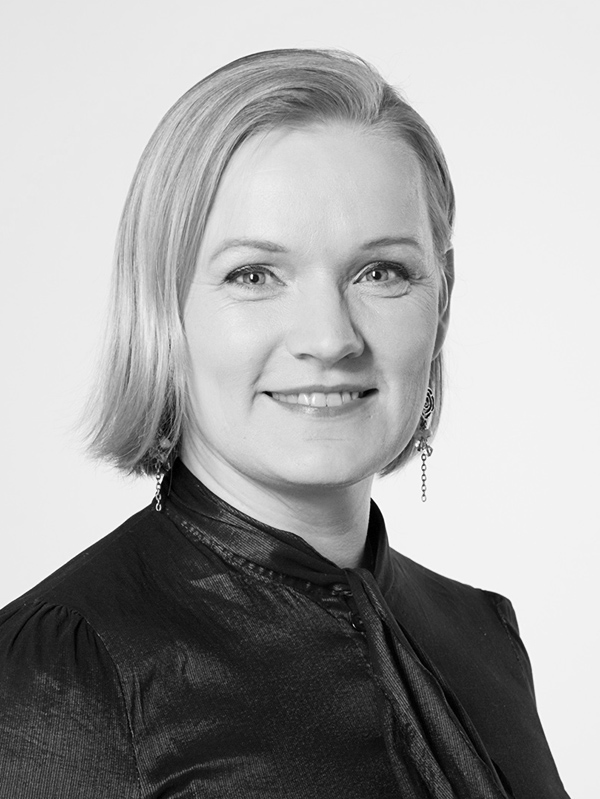 Kadri Leetmaa is a Senior Research Fellow of Human Geography and a Faculty Member in the Department of Geography in the University of Tartu, whose main fields of research include immigration to Estonia, residential mobility in urban regions, contacts of ethnic groups in urban space, segregation in cities, post-socialist changes in cities, and urban planning.
Kadri Leetmaa is a Senior Research Fellow of Human Geography and a Faculty Member in the Department of Geography in the University of Tartu, whose main fields of research include immigration to Estonia, residential mobility in urban regions, contacts of ethnic groups in urban space, segregation in cities, post-socialist changes in cities, and urban planning.
 Helina Maasing is a Research Fellow of Migration and Radicalization in the Estonian Academy of Security Sciences, whose main fields of research are immigration and extremism. In earlier work, she mostly focused on issues related to labour migration. At present, she is interested in the European migration crisis and the extremism issues that have accompanied it. She has also studied the impacts and threats of migration as well as the correspondence of the profiles of immigrants with the needs of Estonia’s labour market. She is also the editor of the research journal ‘Proceedings’ of the Estonian Academy of Security Sciences.
Helina Maasing is a Research Fellow of Migration and Radicalization in the Estonian Academy of Security Sciences, whose main fields of research are immigration and extremism. In earlier work, she mostly focused on issues related to labour migration. At present, she is interested in the European migration crisis and the extremism issues that have accompanied it. She has also studied the impacts and threats of migration as well as the correspondence of the profiles of immigrants with the needs of Estonia’s labour market. She is also the editor of the research journal ‘Proceedings’ of the Estonian Academy of Security Sciences.
 Jaan Masso is a Senior Research Fellow of the Economics Department of University of Tartu, whose main fields of research include labour economics, international trade, direct foreign investments, innovation in companies, and science policy. He obtained his PhD in Economics from the University of Tartu in 2005.
Jaan Masso is a Senior Research Fellow of the Economics Department of University of Tartu, whose main fields of research include labour economics, international trade, direct foreign investments, innovation in companies, and science policy. He obtained his PhD in Economics from the University of Tartu in 2005.
 Jerome N. McKibben is a Senior Demographer of McKibben Demographic Research in the US, whose research interests focus on demographic projections, changing borders and migration flows, research methods in demographic processes as well as population statistics, policy and planning, and race-relations. Jerome McKibben was a Visiting Lecturer on demographic projections of small areas in the Estonian Institute for Population Studies of Tallinn University in 2014.
Jerome N. McKibben is a Senior Demographer of McKibben Demographic Research in the US, whose research interests focus on demographic projections, changing borders and migration flows, research methods in demographic processes as well as population statistics, policy and planning, and race-relations. Jerome McKibben was a Visiting Lecturer on demographic projections of small areas in the Estonian Institute for Population Studies of Tallinn University in 2014.
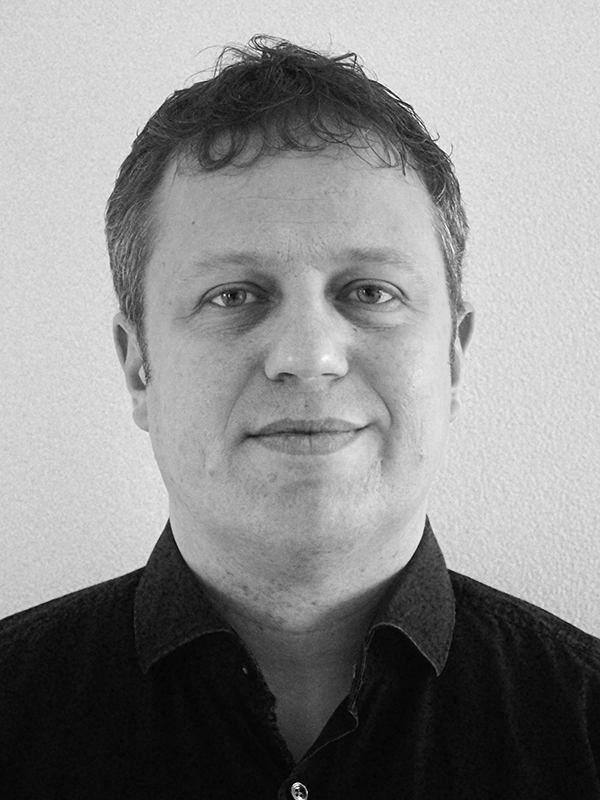 Lauri Mälksoo is a Professor of International Law and the Head of the Department of Public Law in the Faculty of Law of the University of Tartu, whose research focuses on the history and theory of international law, mostly using the comparative method to study international law. He is a member of the Estonian Academy of Sciences since 2013 and an Associated Member of Institut de Droit International since 2015. His last monograph ‘Russian Approaches to International Law’ was published in English in 2015 and in Estonian in 2016. He received the National Research Award in social sciences in 2017.
Lauri Mälksoo is a Professor of International Law and the Head of the Department of Public Law in the Faculty of Law of the University of Tartu, whose research focuses on the history and theory of international law, mostly using the comparative method to study international law. He is a member of the Estonian Academy of Sciences since 2013 and an Associated Member of Institut de Droit International since 2015. His last monograph ‘Russian Approaches to International Law’ was published in English in 2015 and in Estonian in 2016. He received the National Research Award in social sciences in 2017.
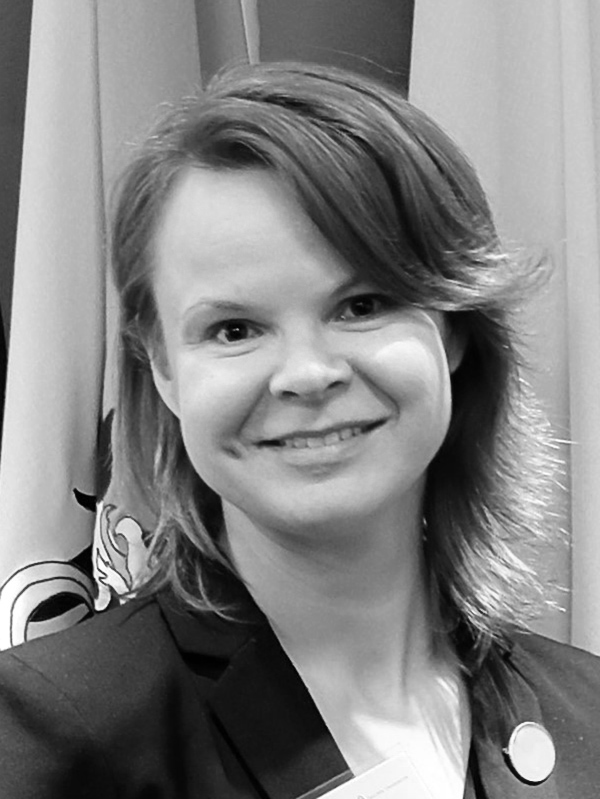 Marion Pajumets is a Migration Researcher and Gender Sociologist whose main fields of research include migration of qualified workforce, including the circular migration and return migration of workers with families and transfer of knowledge. In the years 2014-2015, she focused on the post-Doctorate project ‘’Mobile brains’ in the global race for SET talent’: Capabilities and aspirations for the migration of female SET researchers from the post-socialist countries to Sweden and beyond’. Pajumets is the coordinator of the Estonian European Migration Network National Contact Point at Tallinn University, conducting inquiries, organising practical research and holding conferences in the fields of immigration and international protection.
Marion Pajumets is a Migration Researcher and Gender Sociologist whose main fields of research include migration of qualified workforce, including the circular migration and return migration of workers with families and transfer of knowledge. In the years 2014-2015, she focused on the post-Doctorate project ‘’Mobile brains’ in the global race for SET talent’: Capabilities and aspirations for the migration of female SET researchers from the post-socialist countries to Sweden and beyond’. Pajumets is the coordinator of the Estonian European Migration Network National Contact Point at Tallinn University, conducting inquiries, organising practical research and holding conferences in the fields of immigration and international protection.
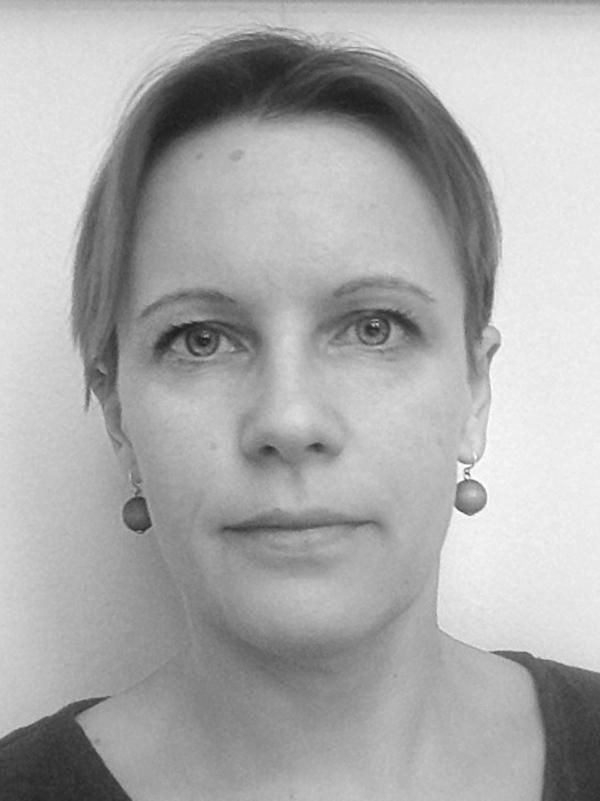 Kristiina Praakli is a Senior Research Fellow of Sociolinguistics in the University of Tartu and a Visiting Lecturer of Estonian in the University of Helsinki, whose main fields of research include the Estonian language in the world, the sustainability of languages, and multilingualism. She is one of the editors of the books ‘Eestlased ja eesti keel välismaal’ (‘Estonians and the Estonian Language Abroad’, 2010) and ‘Negotiating Linguistic Identity. Language and Belonging in Europe’ (2013).
Kristiina Praakli is a Senior Research Fellow of Sociolinguistics in the University of Tartu and a Visiting Lecturer of Estonian in the University of Helsinki, whose main fields of research include the Estonian language in the world, the sustainability of languages, and multilingualism. She is one of the editors of the books ‘Eestlased ja eesti keel välismaal’ (‘Estonians and the Estonian Language Abroad’, 2010) and ‘Negotiating Linguistic Identity. Language and Belonging in Europe’ (2013).
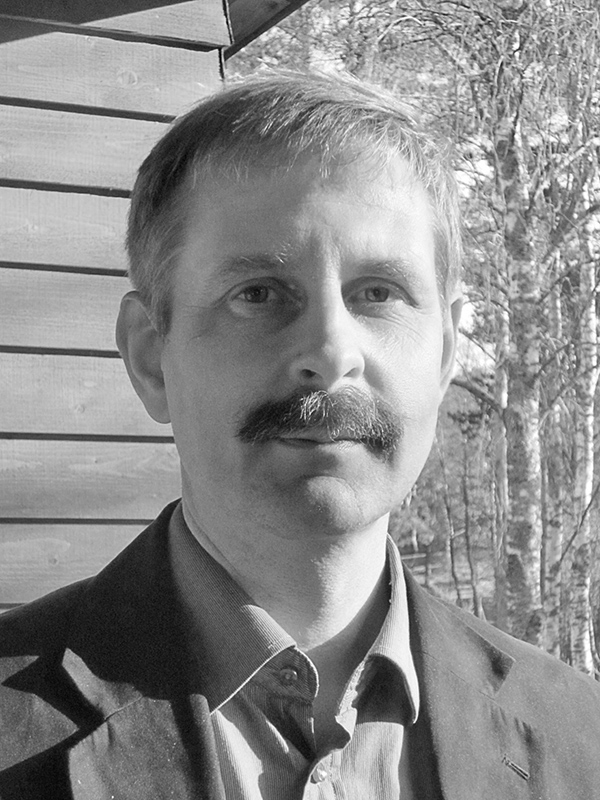 Allan Puur is a Professor of Demography in Tallinn University and the Leading Researcher of the Estonian Institute for Population Studies, whose main field of research is the development of Estonia’s population in a comparative perspective. His research activities in recent years have mostly focused on fertility and family processes (e.g., manifestations of the second demographic transition, impact of the era, long-term sustainability of demographic development etc.). He is also involved in developing population studies infrastructure and data creation.
Allan Puur is a Professor of Demography in Tallinn University and the Leading Researcher of the Estonian Institute for Population Studies, whose main field of research is the development of Estonia’s population in a comparative perspective. His research activities in recent years have mostly focused on fertility and family processes (e.g., manifestations of the second demographic transition, impact of the era, long-term sustainability of demographic development etc.). He is also involved in developing population studies infrastructure and data creation.
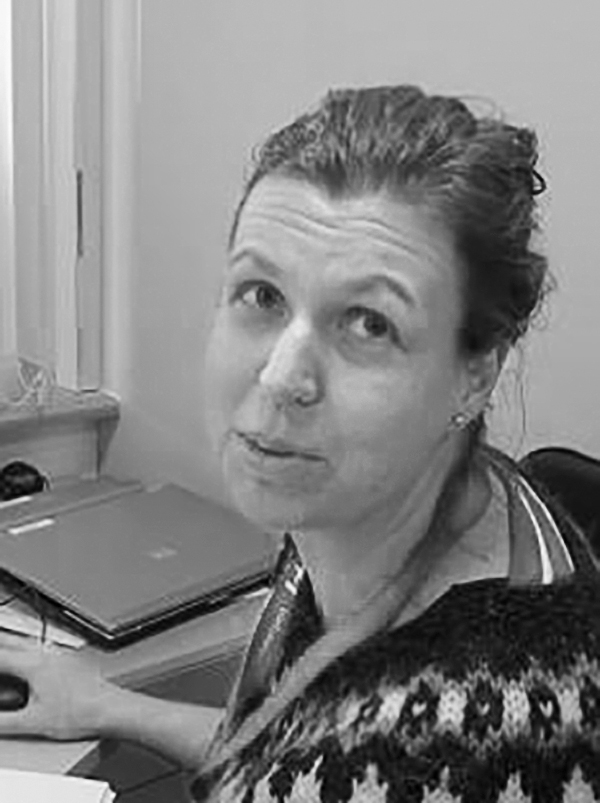 Kaire Põder is a Professor at the Methods Lab of the Estonian Business School, whose main fields of research are mainly related to education and applied research based on microdata, her primary focus is on education economics and policy design. Methods Lab organises, promotes and advises on the study of research methods in social sciences from a cross-disciplinary perspective.
Kaire Põder is a Professor at the Methods Lab of the Estonian Business School, whose main fields of research are mainly related to education and applied research based on microdata, her primary focus is on education economics and policy design. Methods Lab organises, promotes and advises on the study of research methods in social sciences from a cross-disciplinary perspective.
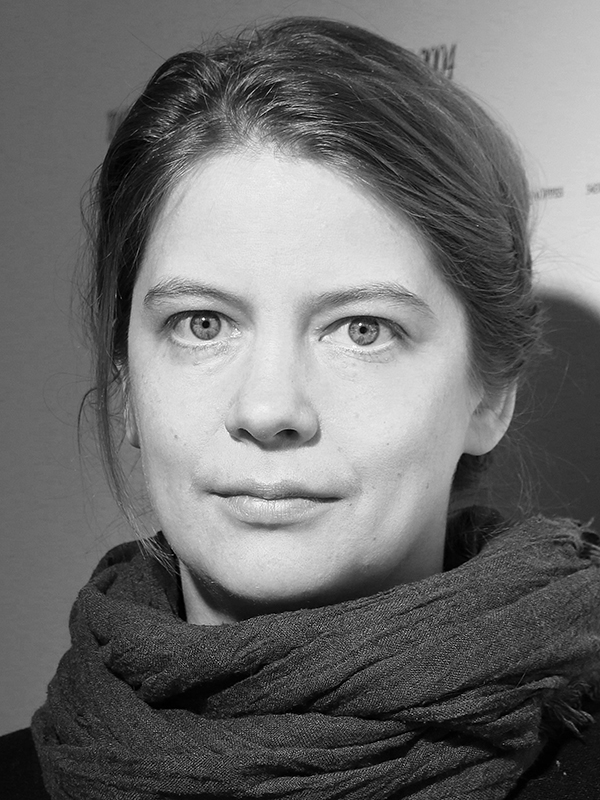 Leen Rahnu is a Research Fellow of the Estonian Institute for Population Studies of Tallinn University and of the University of Tartu, whose field of research is family demographics, including fertility and co-habitation. She has focused on the interrelations between family change and the cultural and institutional social context in her research activities. Analyses of the demographic adaptation of the foreign origin population in Estonia play an important role in her works. She has helped to create training programs to support communication between cultures.
Leen Rahnu is a Research Fellow of the Estonian Institute for Population Studies of Tallinn University and of the University of Tartu, whose field of research is family demographics, including fertility and co-habitation. She has focused on the interrelations between family change and the cultural and institutional social context in her research activities. Analyses of the demographic adaptation of the foreign origin population in Estonia play an important role in her works. She has helped to create training programs to support communication between cultures.
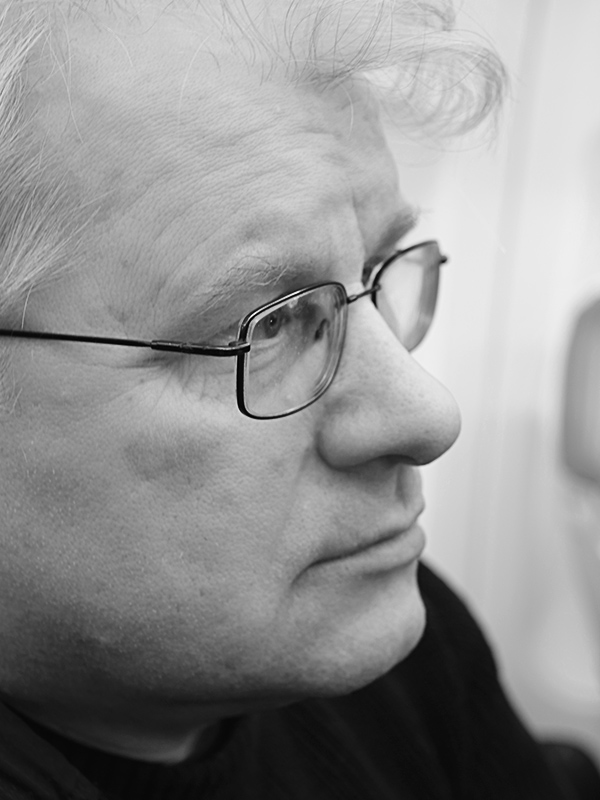 Mart Rannut is an Associate Professor of the University of Tartu’s Narva College, whose main fields of research are language policies and language planning, including language rights, integration and segregation, planning of language training and language methodologies. He has published the books ‘Language Politics and Practices in the Baltic States’ (2009) in collaboration with Gabrielle Hogan-Brun, Uldis Ozolins and Meilutė Ramoniene, ‘Пособие по языковой политике’ (2004) and ‘Keel, võim, ühiskond’ (‘Language, Power and Society’, 2003) with Ülle Rannut and Anna Verschik. He has worked as the Director General of the Language Inspectorate, as a diplomat in the bureau of the Human Rights Commissioner of the Baltic States, and as the Presidential Advisor in human rights issues.
Mart Rannut is an Associate Professor of the University of Tartu’s Narva College, whose main fields of research are language policies and language planning, including language rights, integration and segregation, planning of language training and language methodologies. He has published the books ‘Language Politics and Practices in the Baltic States’ (2009) in collaboration with Gabrielle Hogan-Brun, Uldis Ozolins and Meilutė Ramoniene, ‘Пособие по языковой политике’ (2004) and ‘Keel, võim, ühiskond’ (‘Language, Power and Society’, 2003) with Ülle Rannut and Anna Verschik. He has worked as the Director General of the Language Inspectorate, as a diplomat in the bureau of the Human Rights Commissioner of the Baltic States, and as the Presidential Advisor in human rights issues.
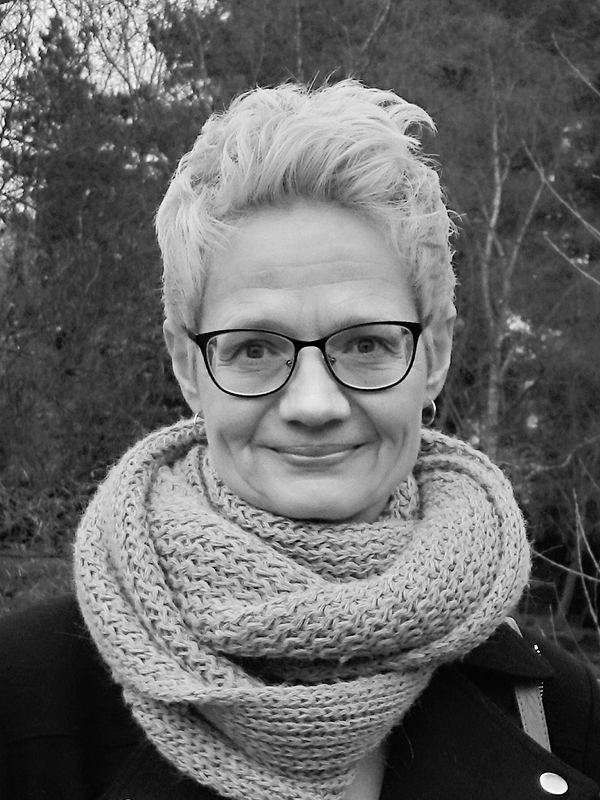 Anu Realo is a Professor of the University of Tartu and the University of Warwick (Great Britain), whose main fields of research include personality traits, emotional experience, social capital, values and subjective well-being. Her recent research also includes the impact of culture and genetics on the development of personality. She is the Principal Investigator for the World Values Survey in Estonia, and has been since 2012, she has published almost 150 studies, most of them in international journals and collections. In 2010, she received the National Research Award in social sciences for the research cycle ‘Personality and Stereotypes in an Intercultural Perspective’.
Anu Realo is a Professor of the University of Tartu and the University of Warwick (Great Britain), whose main fields of research include personality traits, emotional experience, social capital, values and subjective well-being. Her recent research also includes the impact of culture and genetics on the development of personality. She is the Principal Investigator for the World Values Survey in Estonia, and has been since 2012, she has published almost 150 studies, most of them in international journals and collections. In 2010, she received the National Research Award in social sciences for the research cycle ‘Personality and Stereotypes in an Intercultural Perspective’.
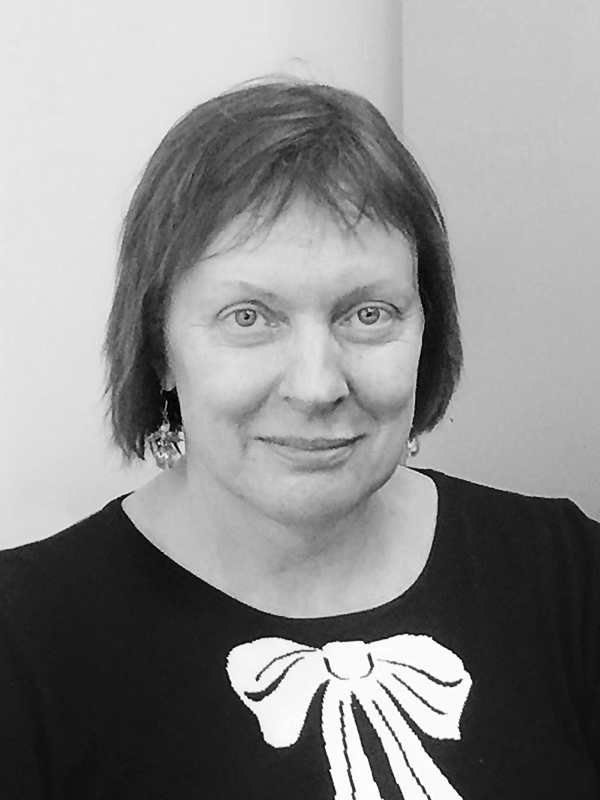 Ellu Saar is a Professor of Sociology in Tallinn University, whose main fields of research are related to social stratification, education and lifelong learning. She participates in many large-scale international projects. In 2014, she received the National Research Award in social sciences. She is the primary editor of the 2013 book ‘Lifelong Learning in Europe: National Patterns and Challenges’ (Edward Elgar) and has published articles in scientific journals like ‘European Sociological Review’, ‘European Societies’, ‘Racial and Ethnic Studies’, and ‘Higher Education’.
Ellu Saar is a Professor of Sociology in Tallinn University, whose main fields of research are related to social stratification, education and lifelong learning. She participates in many large-scale international projects. In 2014, she received the National Research Award in social sciences. She is the primary editor of the 2013 book ‘Lifelong Learning in Europe: National Patterns and Challenges’ (Edward Elgar) and has published articles in scientific journals like ‘European Sociological Review’, ‘European Societies’, ‘Racial and Ethnic Studies’, and ‘Higher Education’.
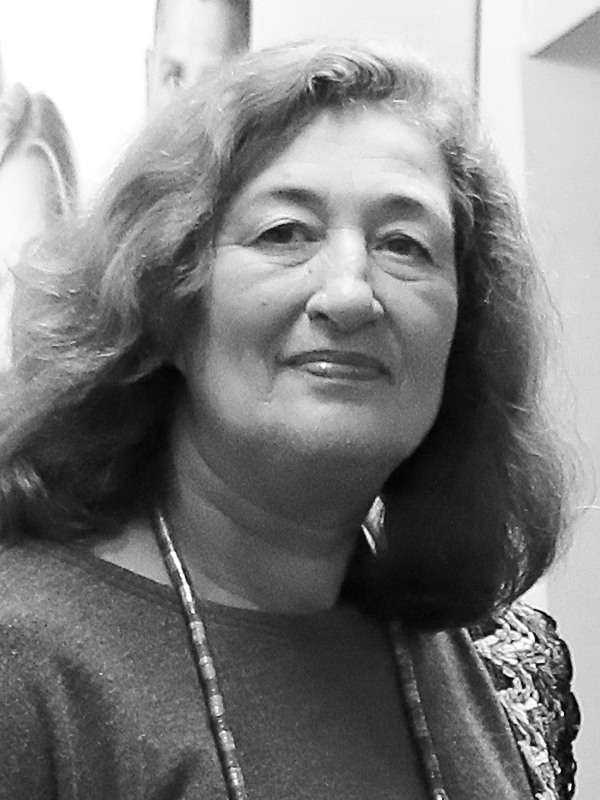 Luule Sakkeus is the Head and Senior Research Fellow of the Estonian Institute for Population Studies of Tallinn University, one of the most long-term researchers of migration processes in Estonia, whose main research has focused on the differences of demographic and health-related behaviour of population groups of foreign origin compared to the native population. In recent years, she has focused on issues related to aging, and she is the Estonian Research Coordinator of the pan-European demographic study of people over 50, SHARE.
Luule Sakkeus is the Head and Senior Research Fellow of the Estonian Institute for Population Studies of Tallinn University, one of the most long-term researchers of migration processes in Estonia, whose main research has focused on the differences of demographic and health-related behaviour of population groups of foreign origin compared to the native population. In recent years, she has focused on issues related to aging, and she is the Estonian Research Coordinator of the pan-European demographic study of people over 50, SHARE.
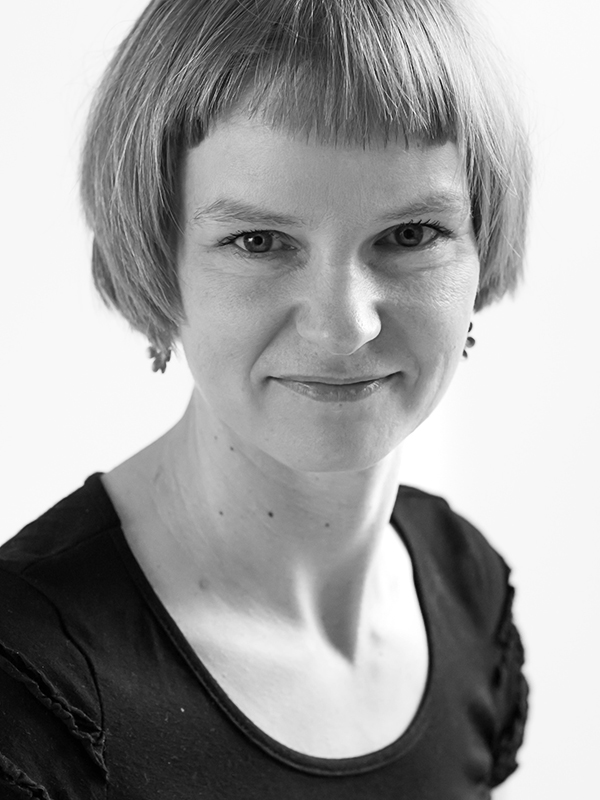 Siiri Silm is a Research Scientist of Human Geography of the University of Tartu, whose fields of research include human spatial-temporal behaviour, analyses of urban space, social networks and segregation (ethnic, age-related). She uses mobile positioning and census data in her research.
Siiri Silm is a Research Scientist of Human Geography of the University of Tartu, whose fields of research include human spatial-temporal behaviour, analyses of urban space, social networks and segregation (ethnic, age-related). She uses mobile positioning and census data in her research.
 Anastassia Zabrodskaja is a Professor of Estonian as a Second Language and lecturer of Intercultural Communications in Tallinn University, whose main fields of research include issues of identity, language contacts, code transition, and language landscape. She is a Senior Research Fellow of Sociolinguistics in the University of Tartu, and was a researcher in the institutional grant project No. IUT20-3 ‘Sustainability of Estonian in the Era of Globalisation’. She administrates the ERA-NET Rus Plus project ‘Perception of Russia across Eurasia: Memory, Identity, Conflicts’ and is the principal implementer of the COST IS1306 project ‘New Speakers in a Multilingual Europe: Opportunities and Challenges’ in Estonia.
Anastassia Zabrodskaja is a Professor of Estonian as a Second Language and lecturer of Intercultural Communications in Tallinn University, whose main fields of research include issues of identity, language contacts, code transition, and language landscape. She is a Senior Research Fellow of Sociolinguistics in the University of Tartu, and was a researcher in the institutional grant project No. IUT20-3 ‘Sustainability of Estonian in the Era of Globalisation’. She administrates the ERA-NET Rus Plus project ‘Perception of Russia across Eurasia: Memory, Identity, Conflicts’ and is the principal implementer of the COST IS1306 project ‘New Speakers in a Multilingual Europe: Opportunities and Challenges’ in Estonia.
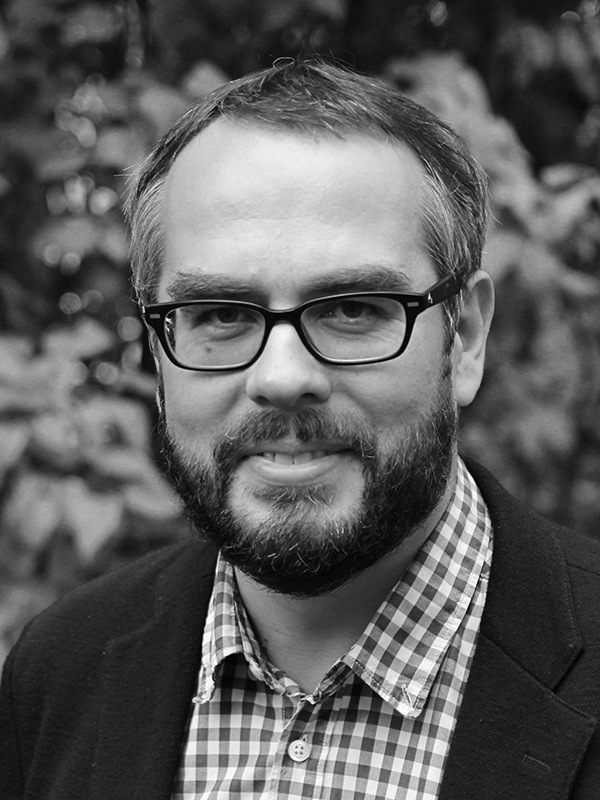 Marek Tamm is a Professor of Cultural History and a Senior Research Fellow of Medieval Studies in Tallinn University, whose main fields of research focus on studies of Medieval European cultural history, philosophy of history, cultural theory, and cultural memory. His recent publications include the collections ‘Afterlife of Events: Perspectives on Mnemohistory’ (Palgrave Macmillan, 2015) and ‘Kuidas uurida kultuuri? Kultuuriteaduste metodoloogia’ (‘How to Study Culture? A Methodology of Cultural Sciences’, Tallinn University Press, 2016). He is the editor of the journals ‘Vikerkaar’ and ‘Journal of the Philosophy of History’.
Marek Tamm is a Professor of Cultural History and a Senior Research Fellow of Medieval Studies in Tallinn University, whose main fields of research focus on studies of Medieval European cultural history, philosophy of history, cultural theory, and cultural memory. His recent publications include the collections ‘Afterlife of Events: Perspectives on Mnemohistory’ (Palgrave Macmillan, 2015) and ‘Kuidas uurida kultuuri? Kultuuriteaduste metodoloogia’ (‘How to Study Culture? A Methodology of Cultural Sciences’, Tallinn University Press, 2016). He is the editor of the journals ‘Vikerkaar’ and ‘Journal of the Philosophy of History’.
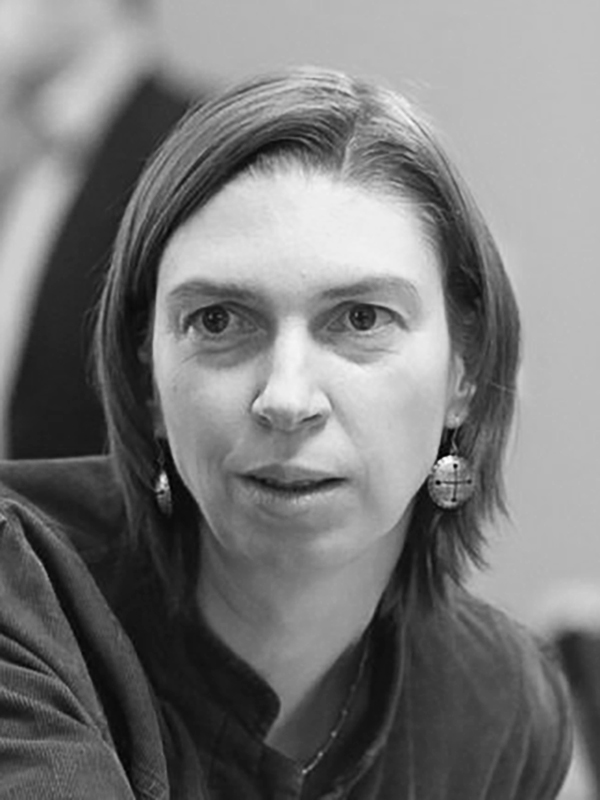 Alis Tammur is a Senior Analyst of Population in Statistics Estonia, whose main focus is to design and develop population statistics methods, and to analyse and interpret the results. Presently, she is mainly involved with migration statistics and looking for opportunities to improve time series of migration data. Her M.Sc. thesis defended in the Institute of Geography of the University of Tartu, focused on the adaptation of immigrants and their descendants.
Alis Tammur is a Senior Analyst of Population in Statistics Estonia, whose main focus is to design and develop population statistics methods, and to analyse and interpret the results. Presently, she is mainly involved with migration statistics and looking for opportunities to improve time series of migration data. Her M.Sc. thesis defended in the Institute of Geography of the University of Tartu, focused on the adaptation of immigrants and their descendants.
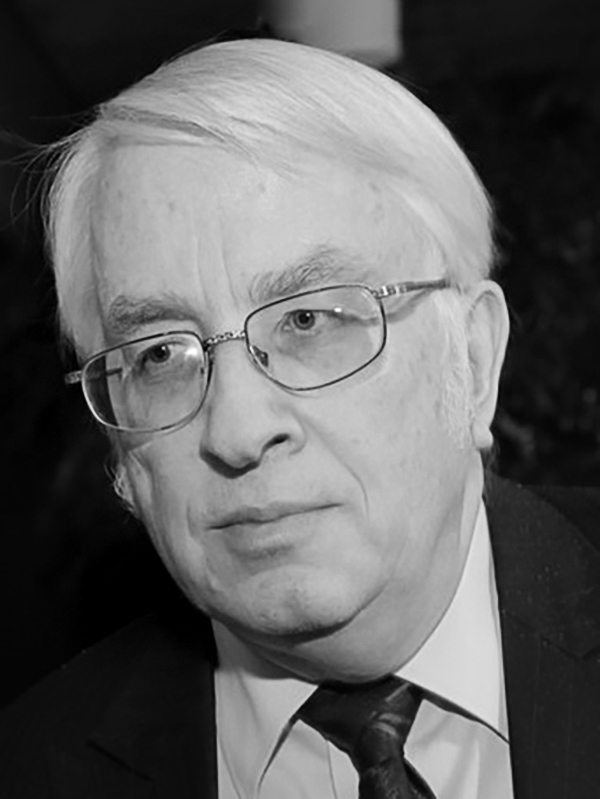 Erik Terk is a Professor of Strategy and Future Studies, and a Project Manager of International Studies and Future Studies in Tallinn University, whose main field of research relates to perspectives of the economic, political and social development of Estonia in the changing geopolitical and geo-economic environment. He is the founder of the Estonian Institute for Futures Studies and one of the leaders of future studies in Estonia. He has been an involved as an editor and author of the Estonian Human Development Reports for several years.
Erik Terk is a Professor of Strategy and Future Studies, and a Project Manager of International Studies and Future Studies in Tallinn University, whose main field of research relates to perspectives of the economic, political and social development of Estonia in the changing geopolitical and geo-economic environment. He is the founder of the Estonian Institute for Futures Studies and one of the leaders of future studies in Estonia. He has been an involved as an editor and author of the Estonian Human Development Reports for several years.
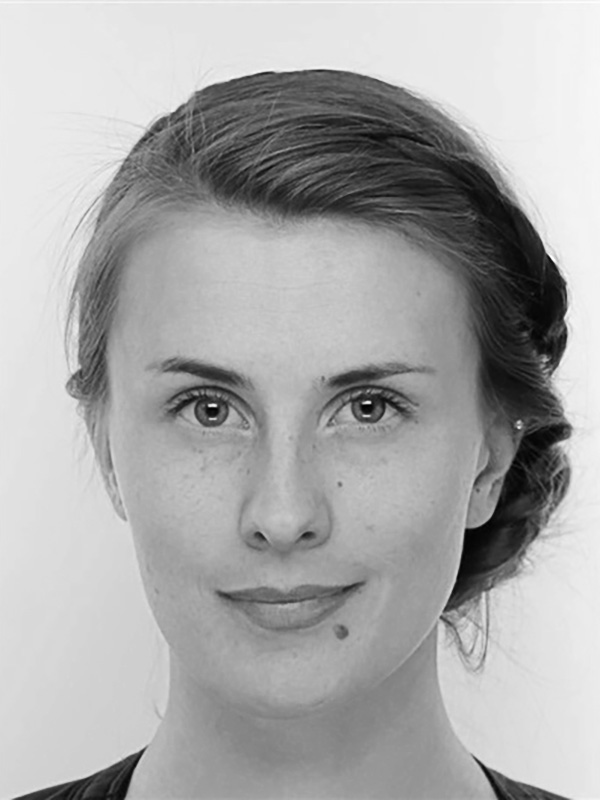 Keiu Telve is a Doctoral Candidate of the Ethnology Department and of the University of Tartu and the head of the Estonian Centre for Applied Anthropology, whose main fields of research include commuting between Estonia and Finland as well as transnational families. She is also a Junior Researcher in the University of Eastern Finland and is participating in two international projects focusing on studying families and their migration patterns. She is seeking practical application opportunities for the field of humanities, and conducts social science research by using the methods of anthropology. Her Master’s thesis on migration was awarded with the first prize in the 2012 student papers competition.
Keiu Telve is a Doctoral Candidate of the Ethnology Department and of the University of Tartu and the head of the Estonian Centre for Applied Anthropology, whose main fields of research include commuting between Estonia and Finland as well as transnational families. She is also a Junior Researcher in the University of Eastern Finland and is participating in two international projects focusing on studying families and their migration patterns. She is seeking practical application opportunities for the field of humanities, and conducts social science research by using the methods of anthropology. Her Master’s thesis on migration was awarded with the first prize in the 2012 student papers competition.
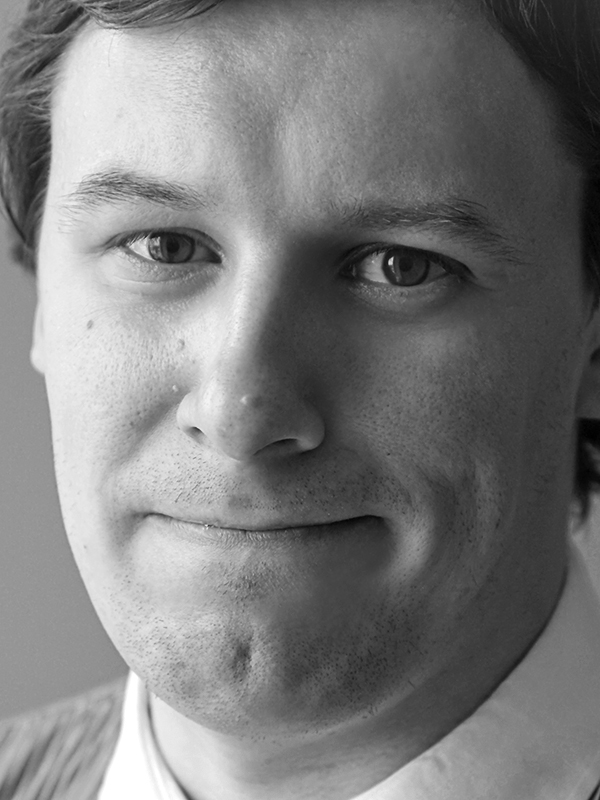 Margus Tiru is the CEO of OÜ Positium LBS, and a Doctoral Candidate of Geoinformatics in the University of Tartu, whose main fields of research are mainly related to big data, which he uses to study the location and movement of people in short- and long-term migration, daily activity space, tourism and other areas. He has been involved in the development of mobile positioning methodology since 2005. He participates in various international organisations’ working groups and projects; such as the UN, Eurostat, the International Telecommunications Association, and the OECD, related to human mobility, big data and statistics.
Margus Tiru is the CEO of OÜ Positium LBS, and a Doctoral Candidate of Geoinformatics in the University of Tartu, whose main fields of research are mainly related to big data, which he uses to study the location and movement of people in short- and long-term migration, daily activity space, tourism and other areas. He has been involved in the development of mobile positioning methodology since 2005. He participates in various international organisations’ working groups and projects; such as the UN, Eurostat, the International Telecommunications Association, and the OECD, related to human mobility, big data and statistics.
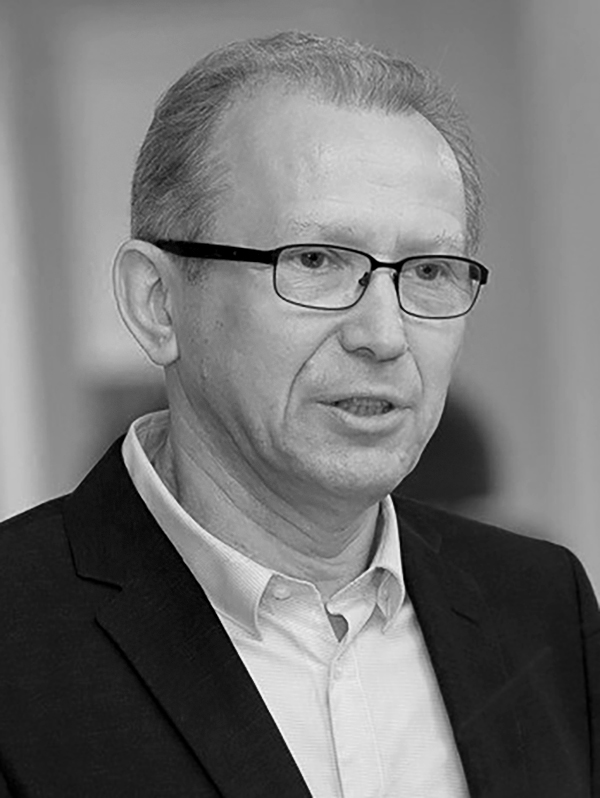 Peeter Torop is a Professor of Cultural Semiotics of the University of Tartu, whose main fields of research include intermediation processes in culture, the problems of translatability and transmediality of sign systems, cultural semiotics and methodology of translation science. He is the author of ‘Kultuurimärgid’ (‘Cultural Signs’, 1999) and ‘Tõlge ja kultuur’ (‘Translation and Culture’, 2011) in Estonian and ‘Total Translation’ (translated into Italian, Polish and Ukrainian, 1995) and ‘Dostoyevsky: History and Ideology’ (1997) in Russian. He is the co-editor of the journal ‘Sign Systems Studies’ and the book series ‘Tartu Semiotics Library’ and ‘New Perspectives in Reading 19th Century Russian Literature’.
Peeter Torop is a Professor of Cultural Semiotics of the University of Tartu, whose main fields of research include intermediation processes in culture, the problems of translatability and transmediality of sign systems, cultural semiotics and methodology of translation science. He is the author of ‘Kultuurimärgid’ (‘Cultural Signs’, 1999) and ‘Tõlge ja kultuur’ (‘Translation and Culture’, 2011) in Estonian and ‘Total Translation’ (translated into Italian, Polish and Ukrainian, 1995) and ‘Dostoyevsky: History and Ideology’ (1997) in Russian. He is the co-editor of the journal ‘Sign Systems Studies’ and the book series ‘Tartu Semiotics Library’ and ‘New Perspectives in Reading 19th Century Russian Literature’.
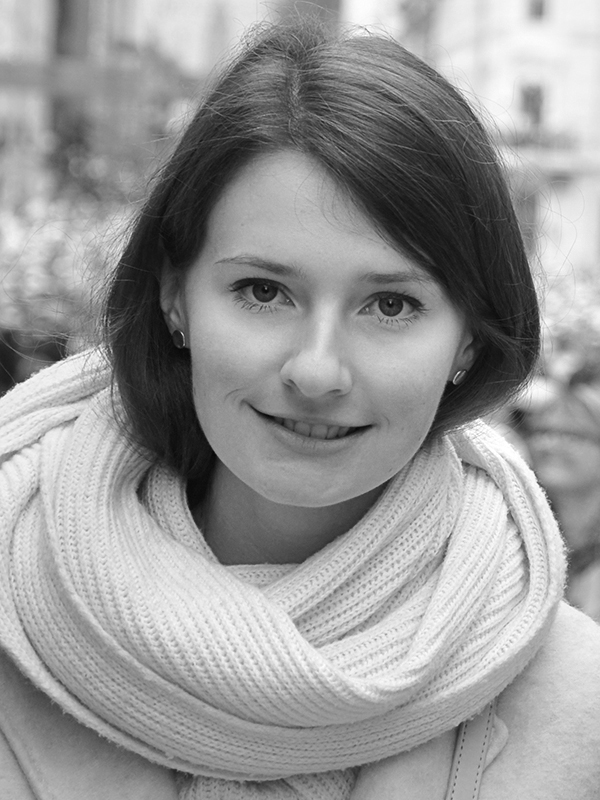 Maryna Tverdostup is a Doctoral Candidate and has been a Junior Research Fellow of the University of Tartu since 2014, whose main field of research tackles issues of international migration and the gender salary gap.
Maryna Tverdostup is a Doctoral Candidate and has been a Junior Research Fellow of the University of Tartu since 2014, whose main field of research tackles issues of international migration and the gender salary gap.
 Kert Valdaru has been working on positions related to the field of migration for over a decade. He has worked in the migration policy design unit of the Ministry of Internal Affairs, both as a Department Head and as a Deputy Department Head. He has been working as the Unit Head and the migration expert in the Estonian Academy of Security Sciences, for the last seven years; developing the Academy’s capacity for designing studies of migration, refugees and integration as well as organising trainings and awareness events, while also lecturing actively.
Kert Valdaru has been working on positions related to the field of migration for over a decade. He has worked in the migration policy design unit of the Ministry of Internal Affairs, both as a Department Head and as a Deputy Department Head. He has been working as the Unit Head and the migration expert in the Estonian Academy of Security Sciences, for the last seven years; developing the Academy’s capacity for designing studies of migration, refugees and integration as well as organising trainings and awareness events, while also lecturing actively.
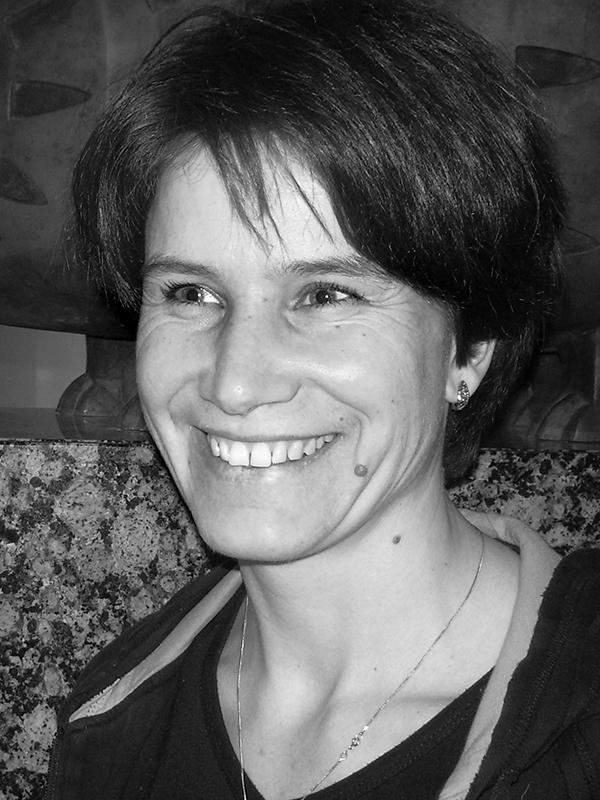 Aune Valk (PhD in Psychology, 2001) has been studying ethnic and state identities across various groups in Estonia as well as other Baltic and Nordic countries for the past 25 years. She has published dozens of articles and edited books on various subjects related to education as well as comparative cultural studies. She has previously worked as the Director and Head of the Academic Affairs Department of the University of Tartu, as a Research Fellow in Tallinn University and the Estonian Literary Museum, as well as an Estonian Project Manager of the OECD’s Programme for the International Assessment of Adult Competencies (PIAAC). She is presently employed as the Head of the Analysis Department in the Ministry of Education and Research.
Aune Valk (PhD in Psychology, 2001) has been studying ethnic and state identities across various groups in Estonia as well as other Baltic and Nordic countries for the past 25 years. She has published dozens of articles and edited books on various subjects related to education as well as comparative cultural studies. She has previously worked as the Director and Head of the Academic Affairs Department of the University of Tartu, as a Research Fellow in Tallinn University and the Estonian Literary Museum, as well as an Estonian Project Manager of the OECD’s Programme for the International Assessment of Adult Competencies (PIAAC). She is presently employed as the Head of the Analysis Department in the Ministry of Education and Research.
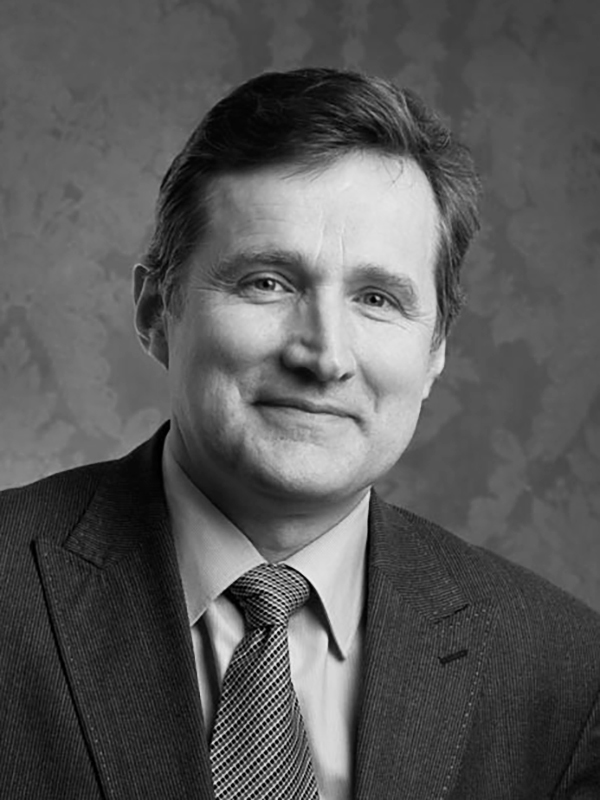 Urmas Varblane is a Professor of International Business and Innovation in the University of Tartu and a member of the Estonian Academy of Sciences, whose main fields of research involve the role of direct foreign investments in the restructuring of the economy and the knowledge transfer of Estonia and other transitional countries, path dependency of the state innovation system and issues related to knowledge transfer, paying special attention to cooperation between universities and businesses. He played an important role in implementing the Research and Innovation Policy Monitoring Programme TIPS, which significantly influenced the designing of Estonia’s research, development and innovation strategy as well as the renewal of research funding models. His work has been acknowledged with the National Research Award in social sciences (2003) and with the Order of the White Star (2013).
Urmas Varblane is a Professor of International Business and Innovation in the University of Tartu and a member of the Estonian Academy of Sciences, whose main fields of research involve the role of direct foreign investments in the restructuring of the economy and the knowledge transfer of Estonia and other transitional countries, path dependency of the state innovation system and issues related to knowledge transfer, paying special attention to cooperation between universities and businesses. He played an important role in implementing the Research and Innovation Policy Monitoring Programme TIPS, which significantly influenced the designing of Estonia’s research, development and innovation strategy as well as the renewal of research funding models. His work has been acknowledged with the National Research Award in social sciences (2003) and with the Order of the White Star (2013).
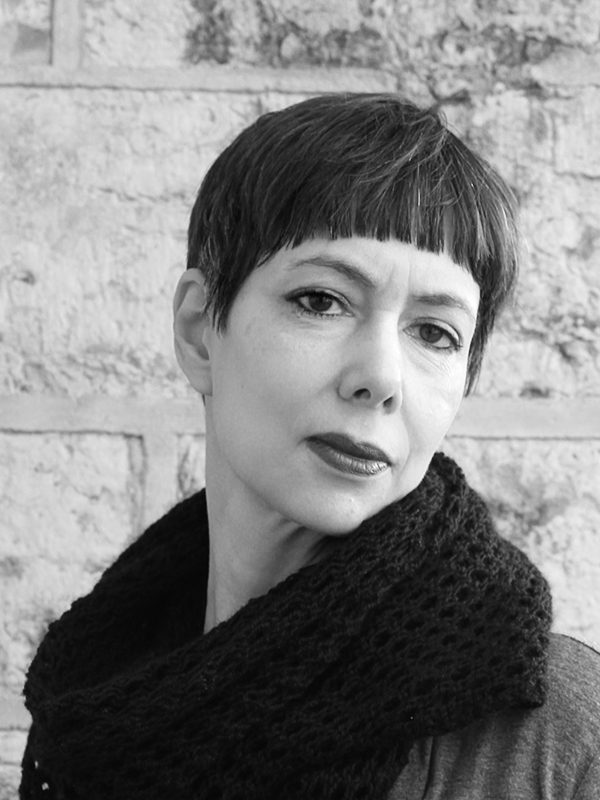 Anna Verschik is a Professor of Linguistics at Tallinn University, whose main fields of research are language contacts, multilingualism and sociolinguistics. She has published several articles on English-Estonian and Estonian-Russian language contacts, on multilingualism on the Internet and on Baltic sociolinguistics. She has written the monograph ‘Emerging Bilingualism: from Monolingualism to Code-Copying’ (Continuum, 2008) and published in the journals such as ‘International Journal of Bilingualism’, ‘International Journal of the Sociology of Language’, ‘Sociolinguistic Studies’, ‘Journal of Language Contact’.
Anna Verschik is a Professor of Linguistics at Tallinn University, whose main fields of research are language contacts, multilingualism and sociolinguistics. She has published several articles on English-Estonian and Estonian-Russian language contacts, on multilingualism on the Internet and on Baltic sociolinguistics. She has written the monograph ‘Emerging Bilingualism: from Monolingualism to Code-Copying’ (Continuum, 2008) and published in the journals such as ‘International Journal of Bilingualism’, ‘International Journal of the Sociology of Language’, ‘Sociolinguistic Studies’, ‘Journal of Language Contact’.
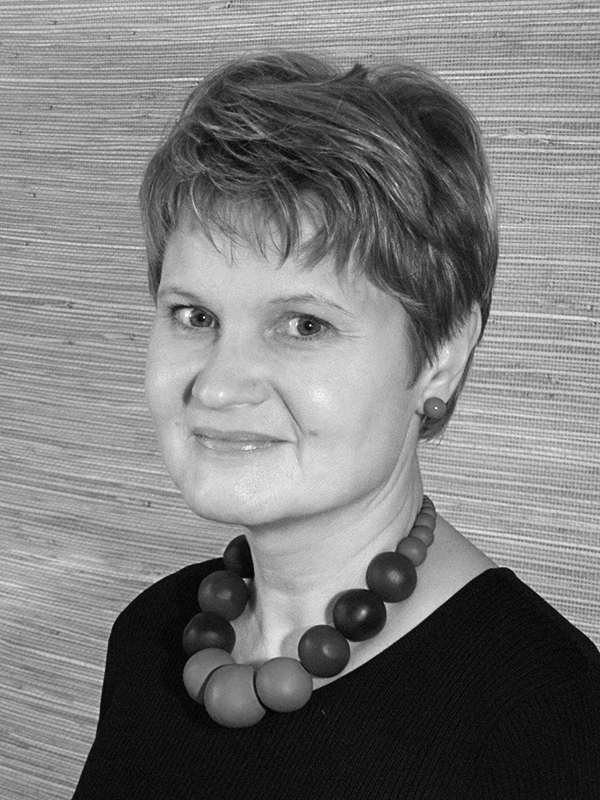 Triin Vihalemm is a Professor of Communication Studies at the University of Tartu, whose main field of research includes the role of communication in the processes of social change while also teaching students in the same field. A significant part of the almost 90 scientific articles and book chapters she has published deal with the identity of the Russian-speaking population of Estonia, their language and media usage. She has recently started a study on the impacts of political crisis on the identity of people with transnational lifestyles on the example of the Russian-speaking populations of Estonia and Latvia. She is the Vice President of the Estonian Association of Sociologists and a member of the committee of the Transformation Sociology Network of the European Sociological Association.
Triin Vihalemm is a Professor of Communication Studies at the University of Tartu, whose main field of research includes the role of communication in the processes of social change while also teaching students in the same field. A significant part of the almost 90 scientific articles and book chapters she has published deal with the identity of the Russian-speaking population of Estonia, their language and media usage. She has recently started a study on the impacts of political crisis on the identity of people with transnational lifestyles on the example of the Russian-speaking populations of Estonia and Latvia. She is the Vice President of the Estonian Association of Sociologists and a member of the committee of the Transformation Sociology Network of the European Sociological Association.
 Tõnu Viik is a Professor of Philosophy at Tallinn University and the Director of the School of Humanities, whose main fields of research include the traditions of phenomenology, cultural philosophy, and cultural theory. His work focuses on culture-dependant creation of meaning and on interpreting it from the point of view of phenomenology. He has also studied the meaning of Estonian culture as a national culture and published articles on the history of philosophy, on phenomenology and culture.
Tõnu Viik is a Professor of Philosophy at Tallinn University and the Director of the School of Humanities, whose main fields of research include the traditions of phenomenology, cultural philosophy, and cultural theory. His work focuses on culture-dependant creation of meaning and on interpreting it from the point of view of phenomenology. He has also studied the meaning of Estonian culture as a national culture and published articles on the history of philosophy, on phenomenology and culture.
 Annika Väiko is a Research Assistant at the Centre for Migration and Urban Studies of the University of Tartu, since 2014, whose main fields of research are migration, residential mobility and segregation. She holds a Master’s degree in human geography and regional planning.
Annika Väiko is a Research Assistant at the Centre for Migration and Urban Studies of the University of Tartu, since 2014, whose main fields of research are migration, residential mobility and segregation. She holds a Master’s degree in human geography and regional planning.